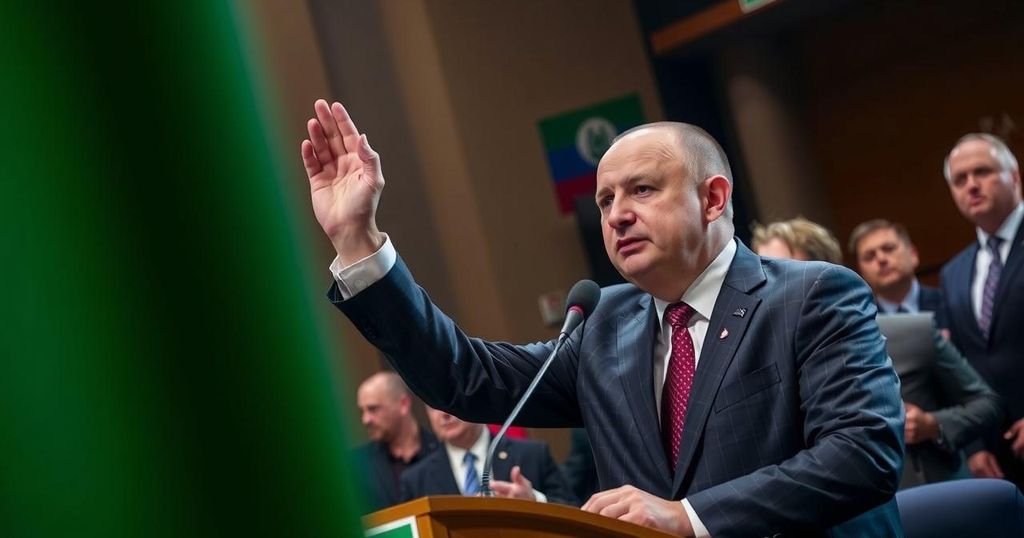Boyko Borissov Appears Set to Regain Power in Bulgaria’s Parliamentary Election

Boyko Borissov’s GERB party is likely the winner of Bulgaria’s parliamentary election, with preliminary results showing 26.5% of the votes. The far-right party Vazrazhdane follows at 13.5%. Borissov expressed willingness to negotiate a coalition, excluding Vazrazhdane, amid a complex political scenario that may prompt further elections if coalitions are not formed.
Boyko Borissov, the leader of the center-right GERB party, is emerging as the probable victor of Bulgaria’s parliamentary election held on October 27, 2024. Preliminary results released by the Central Electoral Commission indicate that Gerb has garnered approximately 26.5% of the votes, surpassing the pro-Western reformist bloc led by the We Continue the Change party by nearly 12 percentage points. The results further reveal significant electoral support for several parties; notably, the far-right party Vazrazhdane, which espouses pro-Russian sentiments, attained third place with 13.5% of the vote. Additionally, the Movement for Rights and Freedoms, a party representing Bulgaria’s ethnic Turkish minority, has seen a split into two factions, securing 7% and 11% of the votes respectively. Electoral dynamics suggest that Borissov, if confirmed as winner, will be tasked with negotiating the formation of his fourth government amidst a fragmented parliament, which includes eight different party representations. His initial statements indicate a readiness to compromise to establish a coalition, though he has excluded the possibility of aligning with Vazrazhdane due to their controversial stance on national issues, including sanctions against Russia and NATO membership. Political analysts are cautious and forecast that the ongoing coalition negotiations may encounter substantial challenges, potentially leading to further elections if an agreement cannot be reached.
The electoral landscape in Bulgaria has been notably unstable, marked by frequent elections over the past three years. The center-right GERB party, led by former Prime Minister Boyko Borissov, has previously held power and is now looking to reclaim governance amid a polarized political environment. The rising popularity of the far-right party Vazrazhdane reflects a notable shift towards nationalist and populist politics in Bulgaria, particularly influenced by sentiments regarding Russia and NATO. Furthermore, the fragmentation of the Movement for Rights and Freedoms into rival factions exemplifies the complexities of ethnic representation within Bulgaria’s political system. In light of these dynamics, coalition-building will likely prove challenging for Borissov’s party, as he seeks to navigate through a politically diverse parliament.
In summary, the latest reports indicate that Boyko Borissov’s GERB party is poised to emerge victorious in Bulgaria’s parliamentary election with a substantial majority. However, the composition of the parliament will necessitate intricate coalition negotiations among a variety of parties with differing agendas. The forthcoming days are critical as the final official results will dictate the future political direction of Bulgaria, with Borissov potentially facing significant hurdles in establishing a stable government amidst a challenging electoral landscape.
Original Source: apnews.com








